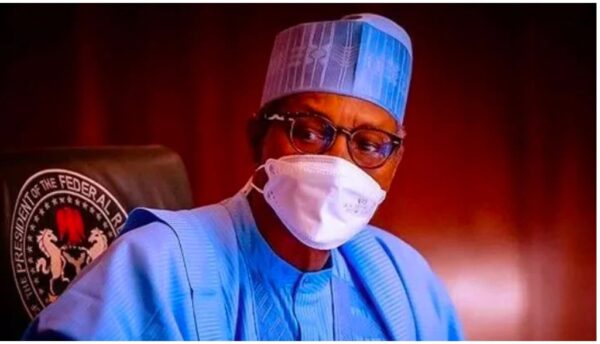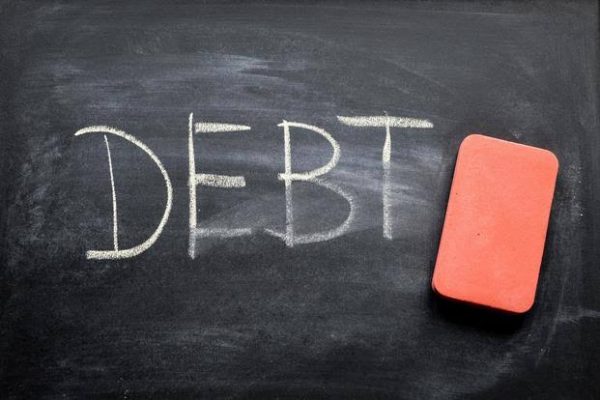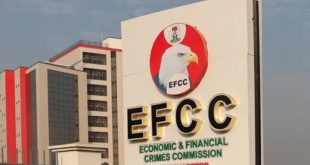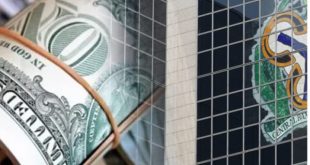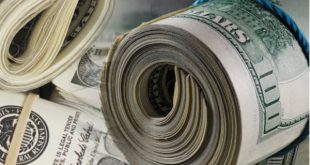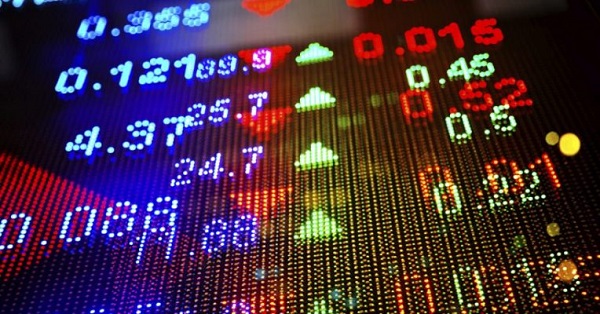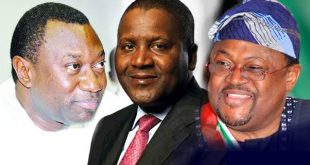The Manufacturers Association of Nigeria, the Lagos Chamber of Commerce and Industry and economists on Wednesday countered the claim made by the President, Major Gen. Muhammadu Buhari, that the economy under him is better than it was in 2015.
The Chairman of the Gas Group, the Manufacturers Association of Nigeria, Mr Ola Adebayo, said Buhari’s regime’s policies have not translated into positive economy growth and real sector development.
He faulted the regime’s implementation of policies under Buhari, stressing that his regime would not score a pass mark.
Adebayo said, “One thing I have observed is that policy formulation is different from implementation. With the recent events, I don’t think the government has passed. We only have very good policies on paper, but the implementation has been lacking. Once there is no implementation, it becomes just an idea.”
Also, the Deputy-President of the Lagos Chamber of Commerce and Industry, Mr Gabriel Idahosa, said the reality was at variance with the claims of the President.

He said the current regime has not been able to attract the private sector to invest in critical infrastructures like railways and airports, saying that the government’s economic model is counterproductive and not in the best interest of the economy.
“The business community has been consistent in saying so. It’s not a matter of disagreeing with him. It’s a matter of looking at the facts at the table.”
Idahosa further said, “We don’t really need any complicated analysis to see whether the policies are addressing the issues of the business community. Whether it is power supply, the foreign exchange market, whether it’s a model that enables the private sector to invest in infrastructure in a manner that enables business to thrive, it is clear for all to see.”
On his part, Director-General, the Nigerian-American Chamber of Commerce, Mr Sola Obadimu, said Buhari’s assessment of his administration’s economic policies did not reflect the realities on ground.
According to him, his regime had failed in all economic indices and should be humble to admit it.
He said, “In the past seven years, we have witnessed the most volatile phases in our industrial life. For instance, if we pick the naira valuation as at when he came in and now, you will see the difference. That has been unfriendly to industry.”
He said the benchmark interest rate has been high at 13 per cent, making access to capital difficult.
Obadimu further stated that with the disparity between exchange rate at the official and parallel markets, it was obvious that the government had created certain opportunities for round tripping in the system and consequently put a strain on business entities who needed foreign exchange for business.
An economist and Chief Executive Officer, Center for the Promotion of Private Enterprise, Dr Muda Yusuf, said that between 2015 and now, the nation’s economy has recorded over 200 percent currency depreciation.
He said that the investors’ confidence has worsened within theperiod under review and major indicators show that the economy is lagging behind .
“I don’t agree with that. Let us look at all the major indicators in the economy. Look at inflation, look at how bad things are and you know the implication of inflation for investments and for welfare. The current situation now is almost unprecedented and, of course, you can’t compare that now to what the situation was in 2015. Look at our currency. What was the exchange rate even at the parallel market in 2015 and what is it now? We are talking of a depreciation of over 200 per cent or even more and that also has a very serious implication. Even the poverty situation in the land is much and the business confidence. Investors’ confidence has worsened between 2015 and now. So, I don’t agree with that assertion.”
Also speaking, the Founder of Cowry Assets Management Limited, Mr Johnson Chukwu, said, “I will be belittling myself to comment on issues like that. Let me ask you, what is your take on it? If I were a journalist, I wouldnn’t even write about it. That’s how I feel about that comment. Because it just doesn’t make sense for me to be wasting my time talking about it. I need to initiate conversations higher than that level. Because even a daft and a person who didn’t go to school will discuss it. It doesn’t make sense. Somebody said I’ve done well and you want me to discuss it. I guess you understand how I feel about that. It doesn’t make sense for anybody to discuss it.
“It’s not a matter of feeling, it’s how you are living. How much do you buy bread? How much do you pay for transport? How good is light in your area? So, if you want me to comment and speak about the economy, the way forward and what to expect from the new president, I will, not this,” he said.
A scholar and an Associate Professor at Pan-Atlantic University, Dr Olalekan Aworinde, said that the only sector that is doing well is the oil and gas.
“We cannot say that the economy has fared well because we still have so many indices that tell us that the total values of goods and services produced in Nigeria are nosediving. The only sector that is doing well is the oil sector. It makes about 80 per cent of the revenue in Nigeria. If you take a look at the manufacturing and agricultural sectors, they are not at the level we expect. There might be some improvement in agriculture but the kind of farming practiced in Nigeria is still at the subsistence level. In the manufacturing sector, we have more firms folding up probably because of these infrastructures that we expect. There’s no stability in power. The rate at which the Gross Domestic Profit is growing in Nigeria is not at the fast rate. It’s increasing at a decreasing rate.”
He also said that the government has pushed a lot of Nigerians into poverty than it has taken people out of poverty.
“Let me talk about price stability, it is worrisome. I don’t know how this government is able to come out without looking at the statistics at the price level. The last figure that was released by the National Bureau of Statistics a few weeks ago tells us that inflation is close to about 18 per cent. So, before they were in government, what was the statistics? So, this government has brought a lot of people more into poverty, absolute poverty than they have taken people out of poverty. I’m not going to agree with President Buhari’s statement. Yes, price stability is the responsibility of the CBN so in an attempt to maintain this price stability, you would discover, particularly this year, that it has been worrisome. It has been on the increase”
“I do not know what the yardstick that he used. Look at the level of unemployment. If you say you want to reduce the level of unemployment, that means that the level of inflation will be on the increase. But despite the fact that there’s an increase in inflation, the level of unemployment is still increasing. It is very clear, this is not unconnected with the manufacturing sector that is not doing well. The manufacturing sector is not doing well, so which sector will be used to employ the teeming youths that are not employed in Nigeria? The unemployment figure in Nigeria is about 33 per cent. So before they assumed office, what was the percentage and presently what is it? This government has taken a lot of loans and the future generations will have to pay for these loans. I do not know where the statistics and the indices that this present government is using to better the lot of Nigerians because as at the last count, the World Bank told us that the present government has made so many Nigerians to fall into abject poverty,”
Director of Research and Strategy, Chapel Hill Denham, Mr Tajudeen Ibrahim, also said, “I think we should look at the major metrics to know if really the economy is doing better now than in 2015 and one major metric is the exchange rate. And for the exchange rate, the Naira has lost tremendous value in the past 7years. And that has led to several other factors such as higher consumer price index over the period. It has also led to great uncertainty for foreign investors in terms of investing in the country,” he concluded
What the numbers say
Under Buhari, Nigeria experienced two recessions – one in 2016 and another in 2020 fuelled by COVID-19.
As at the fourth quarter of 2014, Nigeria’s unemployment rate was 6.2 per cent, according to data by the National Bureau of Statistics, NBS. As at the fourth quarter of 2021, the NBS disclosed that the rate in the economy had risen to 33.3 per cent, making it one of the worst in the world and signifying a 437 per cent increase over the seven-year period.
As at May 2015, Naira exchanged for dollars at N197/$ at the interbank market and N217/$ at the parallel market. Naira is N415-N420 to a dollar at the Importers and Exporters Window and nearly N603-N610 at the parallel market. Subsidy has since risen from N100 million in 2015 to N4 trillion in 2022.
Inflation is not spared as prices have risen by over 70 per cent since Buhari came to power. Inflation has since 2015 risen from 9.01 per cent (average number in 2015) to over 17 per cent in May 2022.
The Misery Index in 2015 was 47.7 points but it has risen to 50.48 points, meaning that more Nigerians are now more miserable than they were in 2015.
Similarly, in 2018, Nigeria was adjudged by the World Poverty Clock as the world’s poverty capital.
According to the World Bank, the poverty rate was 33.1 per cent by the end of 2014/ beginning of 2015, but poverty rate will likely sit at 42.6 per cent in 2022.
 MMS PLUS NG – Maritime, Aviation, Business, Oil and Gas News Online Newspaper with coverage in Maritime, Oil and Gas, Aviation, Power and Energy as well as Financial News
MMS PLUS NG – Maritime, Aviation, Business, Oil and Gas News Online Newspaper with coverage in Maritime, Oil and Gas, Aviation, Power and Energy as well as Financial News

